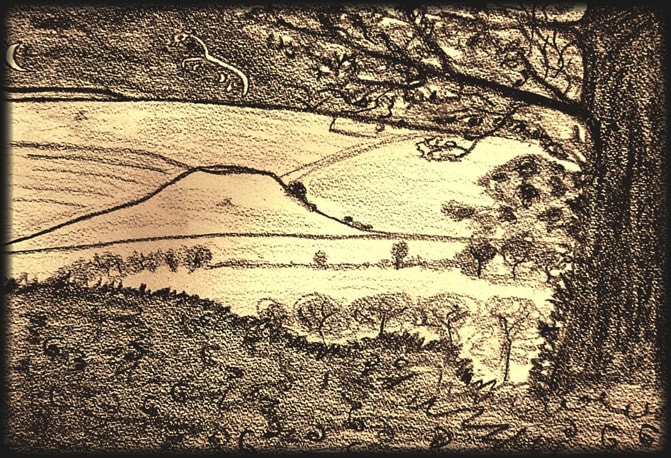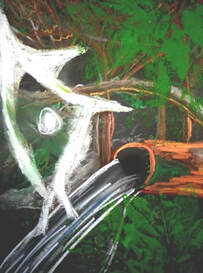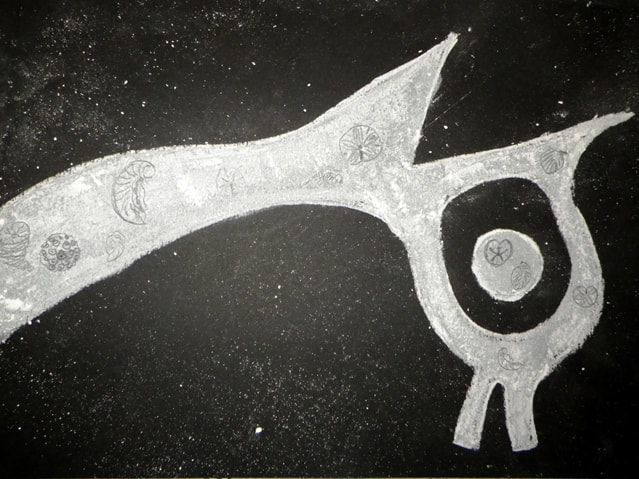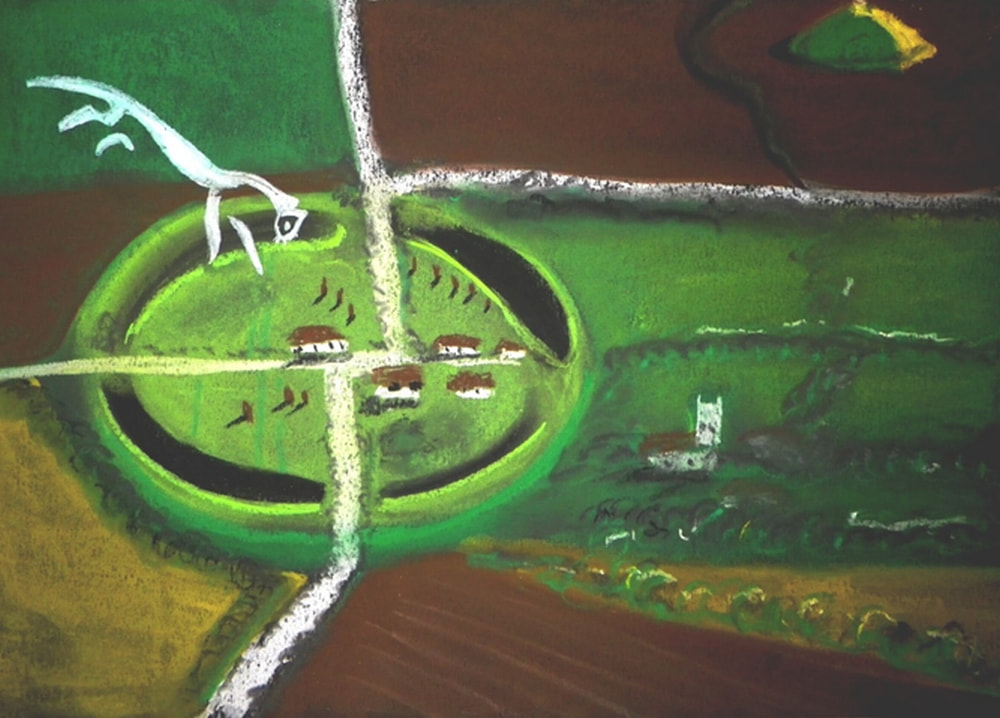That scratching
with a gleaming trowel keeps her
on the edge of ecstasy and pain,
and when fresh chalk is hammered
into her pock-marks, it hurts worse
than the reverse of depilation.
Through the vehicle of fifteen well crafted poems, the reader is taken on a tour of the local area by the horse, herself, who has long been held in local legend to come down from her hill to drink at night. For readers who might feel daunted at the thought of so many strange British monuments, some notes are included at the back of the book, which help to explain things.
I’ve been a fan of Watson’s poetry for awhile, and love the way his viewpoint shifts with the deftness of a finely tuned lens – one moment a telescope, the next a microscope. This is evident in his frequent allusions to the tiny fossils found in the chalk from which the horse is created, as in The White Horse Drinks at the Spring Beneath the Manger.
The White Horse comes gingerly, lest her hooves |
The White Horse and the Milky Way |
Even at dark-moon, there is the danger some |
The White Horse knows |
| Photo by Warren Lilford | Giles Watson was born in Southampton, but emigrated to Australia with his parents at the age of one, and lived there for the next twenty-five years. He returned to live in England between 1995 and 2013, staying in Durham, Buckinghamshire, the Isles of Scilly and Oxfordshire. Much of his creative work is infused with his own idiosyncratic spirituality: awed by nature, steeped in history, and inspired by a quiet sense of the sacramental. Giles moved to Albany, Western Australia, in 2013, and published his first Australian collection, Strandings, shortly afterwards. |






 RSS Feed
RSS Feed




